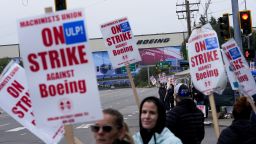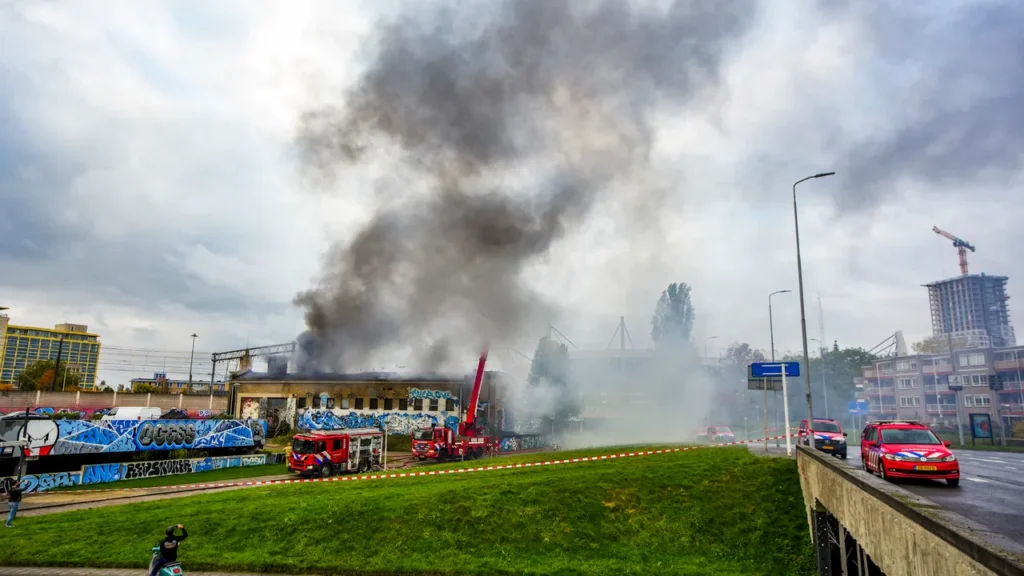New York
CNN
—
The strike at Boeing by 33,000 members of the International Association of Machinists union, which reaches its seventh day today, has already cost the company and workers $572 million, according to an estimate from Anderson Economic Group.
And the pace of losses will climb rapidly if there’s no settlement, as soon as the second week of the strike, said Patrick Anderson, the founder and president of the Michigan research firm, which has experience estimating the cost of economic disruptions like strikes.
“The first week of losses for Boeing are substantial, but they’ll pale in comparison to what comes in the following weeks,” Anderson told CNN.
Still, the losses are less than the $1.6 billion that Anderson estimates the first week of last year’s autoworker strikes at General Motors (GM), Ford (F) and Stellantis (STLA) cost the economy. The strike at Boeing (BA), on the other hand, has yet to have a measurable economic impact on airlines so far, Anderson said.
Boeing deliveries to many airlines were already delayed, after a mid-air door plug blowout on a Boeing 737 Max in January led to increased oversight by the Federal Aviation Administration (FAA).
The union told CNN Wednesday the two sides remain far apart at the negotiating table, and with the companysoon due to start rolling furloughs of many non-union staff, the losses could hit $1 billion early next week.
The biggest losses so far come from the near-halt to Boeing’s commercial airplane production. Anderson estimates the company has lost $445 million in the strike’s first week as it has been unable to complete and deliver aircraft to customers. Boeing gets most of the money from an aircraft sale only upon delivery of the plane.
The losses for workers, primarily the 33,000 union members who have gone on strike, as well as for suppliers come to about $117 million in the first week. The top pay scale for union members at the company is $51.30 an hour, or $2,052 for a 40-hour week, although there are various pay premiums on top of that as well as overtime.
Upcoming furloughs
Boeing CEO Kelly Ortberg told employees in an email Wednesday that the company would start furloughs of a large number of non-union workers in the coming days and that those furloughed would be off, without pay, for one week out of every four for the duration of the strike. Earlier in the week the company announced a hiring freeze as well as a halt in new orders from vendors and suppliers to save cash.
Boeing has a long way back to profitability no matter how long the strike lasts. It is limited in the rate it builds 737 Max jets, as the FAA oversees efforts to improve the quality of its assembly line.
Boeing’s next planned jet, the 777X, which is crucial to a return to profitability, ran into trouble on its test flights and is years overdue in being certified to carry passengers. Boeing has not had the cash it needs to develop a new model jet to serve the market, and its sales have fallen far behind rival Airbus.
The company has one non-union factory, located in South Carolina, that continues to build the 787 Dreamliner. But while that plane is the company’s most expensive aircraft, the factory has only produced 32 of the jets in the first eight months of the year, or as many of its best-selling 737 Max jets as it has built every month in its most recent months. The Max, as well as two freighter models, the 777F and 767F, are built in unionized plants shut down by the strike.
The strike will also cost about $10 million in local losses, including at businesses near the plants, according to Anderson.




